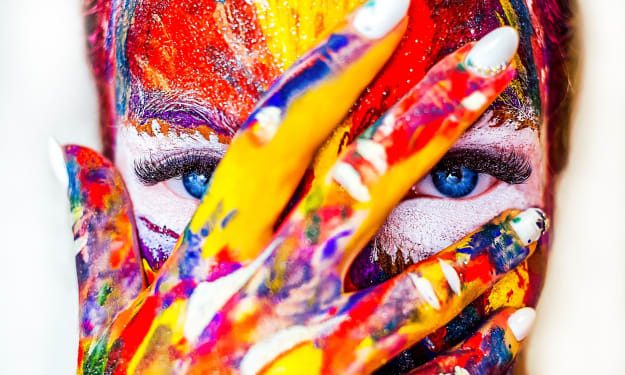3 Ways Online Dating Loses to Traditional Dating and What to Do About It
What I learned in 3 years on Tinder

It started around January 2018. I had a very stable group of long-time friends. We were 9 men in their mid-20s who used to go out on weekends to dine or have a drink and talk about life, work… and women.
We would always go to the same clubs and bars to see the same people and talk about the same things, over and over again. The same people doing the usual.
Many days we would talk about traveling or hang out at different places to meet new people, especially women. We remembered our golden days when there were more women than men in our group. The conversations were more interesting back then and the flow more dynamic.
But then we would come back to reality to realize our life was exactly the same as any other day. In the end, we had been a closed-minded group for a while that had stagnated.
I remember one particular day we were talking about dating. One of my friends, not exactly an expert on relationships or women, told us he was using Tinder to meet girls. I decided if he could do it, I could too. I didn't know anything about online dating back then, but I wanted to give it a try, so I downloaded the app that same night and started chatting with girls.
For those of you that don't know how Tinder works (probably not many of you), the idea is to create a profile by uploading some pictures and writing a short description. Then you can decide which profiles you want to talk to by giving "like". If someone likes you back, then you are a "match" and you can exchange messages and, if everything goes well, phone numbers.
Online dating has received a lot of criticism, and for good reasons. Usually, people that already had a good dating life before the market of dating apps exploded, tend to say things like: "I will never use a dating app" or "online dating is a lot worse than real-life dating" or "you can't really get to know someone online" and then follow with different arguments about why online dating sucks.
I think that their criticism can be summarized in the fact that online dating lacks the naturalness and spontaneity of real-life interactions, with which I agree.
But for me, the essence of dating is to sexually and sentimentally discover a person and create a bonding with it. And I think online dating can achieve that goal as well as traditional dating. The key thing is that we should understand that they work differently and approach them adequately.
I want to make a disclaimer: First, it's true that the differences I describe below eventually disappear when you meet in real life, but until then they are present. Second, there are people on dating sites that are there to just have fun. For them, this article is of little use, although some things may still apply.
Now, without further ado, let's get into it! I'll write from my own experience. I've been on Tinder for 3 years and these are the 3 things I learned in which online dating differs from traditional dating and what to do about it:
1. Sensory perception is absent online and you should replace it
When I meet someone in real life, my first impressions rely a lot on my sensory perception. I always, consciously or unconsciously, ask myself things like: "what do I feel when I look at her? Do I like the way she moves, stands, glances, and smiles? Do I like her scent? Do I like her voice? What is her non-verbal language telling me?" It's all very sense-based.
On the contrary, when I talk to someone online for the first time, all these factors are nonexistent. I can't know how the other person interacts in the real world, I don't have that kind of information. Often, the only things that I have are static images and the written projection of whom the other person is (counting on the person being able to convey it by writing!).
This is a problem because much of the info that you would use in real life to evaluate a potential partner is not present in online dating at the beginning. You may or may not like the real person based on the info you are given. But your brain finds a way to fill the gaps. It completes the missing information with your mental image of the other person.
It has happened to me a handful of times that I'm going to meet someone and I have a very clear picture of how the other person looks, and then we meet and I'm like: "f*ck! It has happened again, I should have asked for a video call!" It's the result of a discrepancy between my mental illusion of the person and the real person.
The lack of information is always corrected by our brains and, most of the time, it's completely wrong.
Takeaway
If you want to create an atmosphere similar to that of traditional dating, you should go from written messages to audio or calls, to video calls if possible, before meeting in person. That way you can have a better, more realistic 3D image of the person you are going to meet and can avoid the who-the-F-are-you? face when you see him/her for the first time.
2. Who you are from your written words vs. who you really are
All dating apps are based on a writing format. We all know the problems that arise from this. How many discussions are caused by Whatsapp misunderstandings?: "Perfect… we've been arguing for 2 hours and now you tell me that you meant it that way! So, we didn't really have a problem, but now we have one!"
I think these misunderstandings are deeper than we normally think. I want to differentiate two issues:
First, we are human beings, incredibly complex. And we want to bond with other human beings, which are as complex as we are. To create that binding you have to be able to project who you are into the world. You have a lot of means to do it in real life but, when it comes to the written word, not many people know how to do it properly.
Expressing all your inner intricacy with its nuances using just written words (and emoticons! :)) takes a lot of practice. It's an ability that can be developed, but it is distinct from expressing yourself in real life. You are not wired to interact with written messages (that's why many people, especially the elder, make it feel as if you were talking to a soulless robot..: "Mom, try to put more hahaha after each sentence!"). In writing format, you lack many resources that would be available otherwise so you should learn to substitute those somehow.
Second, even for the master craftspeople of the written word, it's difficult to be able to project in a written manner who they are in real life.
It's true that some people are simply not skilled enough to make the other person feel as if they were talking to a human being. Those conversations will die out early. But other people are perfectly able to have a written conversation and make it feel almost like a spoken conversation in real life (as I said before, emojis and other prosodic cues are important to convey emotions). Even for the latter, being able to perfectly match who they are in their daily lives with who they project in their written, virtual lives, it's incredibly hard.
Many times I've felt that the person I was talking to online had two different personalities after we met: the written, virtual one, and the real, physical one. The more those two personalities differed, the more problems I had to truly like the person.
Takeaway
I think it's crucial to meet with the other person as soon as possible and get to know the real them. That's the only way to not become attached to a written version of them that is not the one you will interact with in the end.
3. The volatile nature of (online) relationships
We are hardwired to create physical bonds. We feel deeper connections with people that we can see, touch, or smell. The strongest relationships (outside the family) are those that start and develop in real-life interactions and through time.
When you meet someone online, that person is "no one" for you; it's just one more profile out of god-knows-how-many more (sometimes not really that many… I feel you guys). The thing is that any particular person doesn't mean anything and therefore the bond is very fragile. That's why terms such as "ghosting" and many others have been appearing so much in recent times. It's not because people didn't ghost before (they certainly did), but because it's become so common, that people have decided to give it a name. And I think that the reason for us to ghost so much is because online relationships are not as important to us.
I want to note that I'm not referring here to the more general problem of the fluidity of sentimental relationships or the possibility of having too many options. Relationship volatility may indeed be a consequence of how we interact and relate in modern society, but here I was emphasizing the differences between online and real-life dating, not talking about what they have in common. I think that although both types of dating are somehow affected by this issue, online dating has an additional disadvantage that accentuates it, which is what I described above.
Takeaway
Online relationships have to be transformed into real-life, physical relationships as soon as possible, where the bond can grow through time more naturally. I would even argue that it's better to become friends first and let the relationship evolve from that.
Summarizing
I think online dating should be understood in the context in which it works. It shouldn't be criticized just because in some aspects it's worse than traditional dating. It covers a niche that serves a goal for a lot of people.
The key thing is to be aware of the specific abilities that are required to navigate the world of online dating and use them to get what you want from it.
About the Creator
Alberto Romero
Half engineer, half neuroscientist with a deep interest in the humanities






Comments
There are no comments for this story
Be the first to respond and start the conversation.